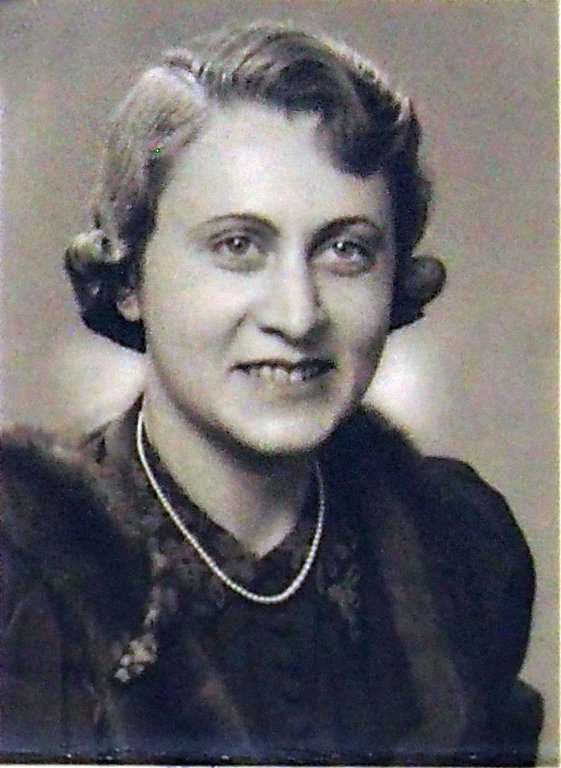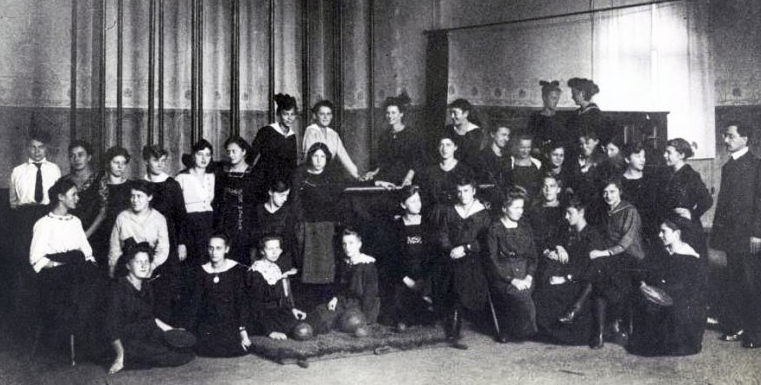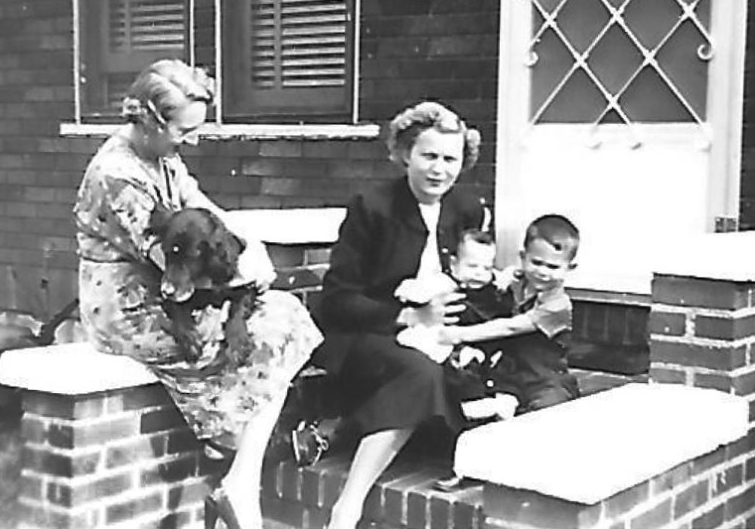Berta Zinn
Author: Julia Mehrmann, Antonia Voll and Manfred Brösamle-Lamprecht

Daughter from a good family


Berta Zinn was born in Bayreuth on March 9, 1904, the youngest of three children of Max Steinhäuser and his wife Mina. The family of the successful cattle and goods trader came from Burgkunstadt.
Berta had a sheltered childhood; after elementary school, she attended the noble Bayreuth Municipal High School for Girls (today the Richard Wagner Gymnasium) and graduated successfully in 1920.
On February 1, 1925, the 21-year-old Berta married Stefan Zinn, 14 years her senior, who, together with his brother Paul Zinn, had been running the renowned, internationally active Zinn basket trading company in Lichtenfels since 1921. The Zinn family was one of the richest in the entire region and was also socially committed and respected. The fact that Berta acquired the driver’s license as early as 1925 also shows her social status.
Five years later, on February 5, 1930, their first and only daughter Lieselotte was born.
Under pressure from the Nazi regime

Residential and business house of the Zinn families Bahnhofstrasse 5
(Berta and Stefan lived in the house with the tower) © Stadtarchiv Lichtenfels
Their social and economic status did not protect the family from the increasing Nazi terror. The Zinns had to liquidate their company. During the November-Pogroms of 1938 (“Kristallnacht”) Nazi thugs entered the home and business premises and devastated what they found. Daughter Lieselotte hid in the attic that night. Berta's brother-in-law Paul panicked, poisoned himself and died days later. Her husband Stefan was taken into "protective custody" for three weeks. After that, it was clear that the family would have to emigrate from Germany.
First Berta and Stefan brought their daughter to safety: Lieselotte was sent to New York to a relative. Her parents followed in April 1939.
Berta's parents also tried to emigrate, but they did not make it. Both were deported in 1942, first to a Jewish old people's home, then to Theresienstadt. There the trace of the father is lost; the mother Mina was taken to Auschwitz in 1944 and murdered ther
New start in the USA
Berta and Stefan Zinn arrived in the USA completely destitute. The family was happy to live rent-free in the home of widower Jerome Cahn and his daughter Jenet Cahn in Brooklyn, New York; in return, Berta worked as a housekeeper and raised young Jenet, who also found a friend for life in Lieselotte.
Berta came to terms with the new situation. She americanized her name to "Bertl" and began working as a chauffeur in New York.
 © Family
© Family
Her husband, who now called himself Stephen, succeeded after years of temporary jobs to use his know-how about baskets: He opened a basket business. The family acquired prosperity again after hard years.
The adult daughter Lilo married Daniel Webster Braun around 1949 and moved to New Jersey. Bertl became a grandmother for the first time in 1950 and for the second time in 1952. After her husband's death in 1974, she moved to a retirement residence near her daughter.
Granddaughter Linda Pfeifer describes Bertl as a woman with a strong personality, as one would expect from a survivor of such a fate. She also remembers Bertl's great love of dogs: Bertl without a dog - you never really saw that.
Bertl and Lilo returned to their former home in Germany one more time. They both found this trip so upsetting and exhausting that they decided not to visit again.
Bertl Zinn died in 1997 at the age of 93.
